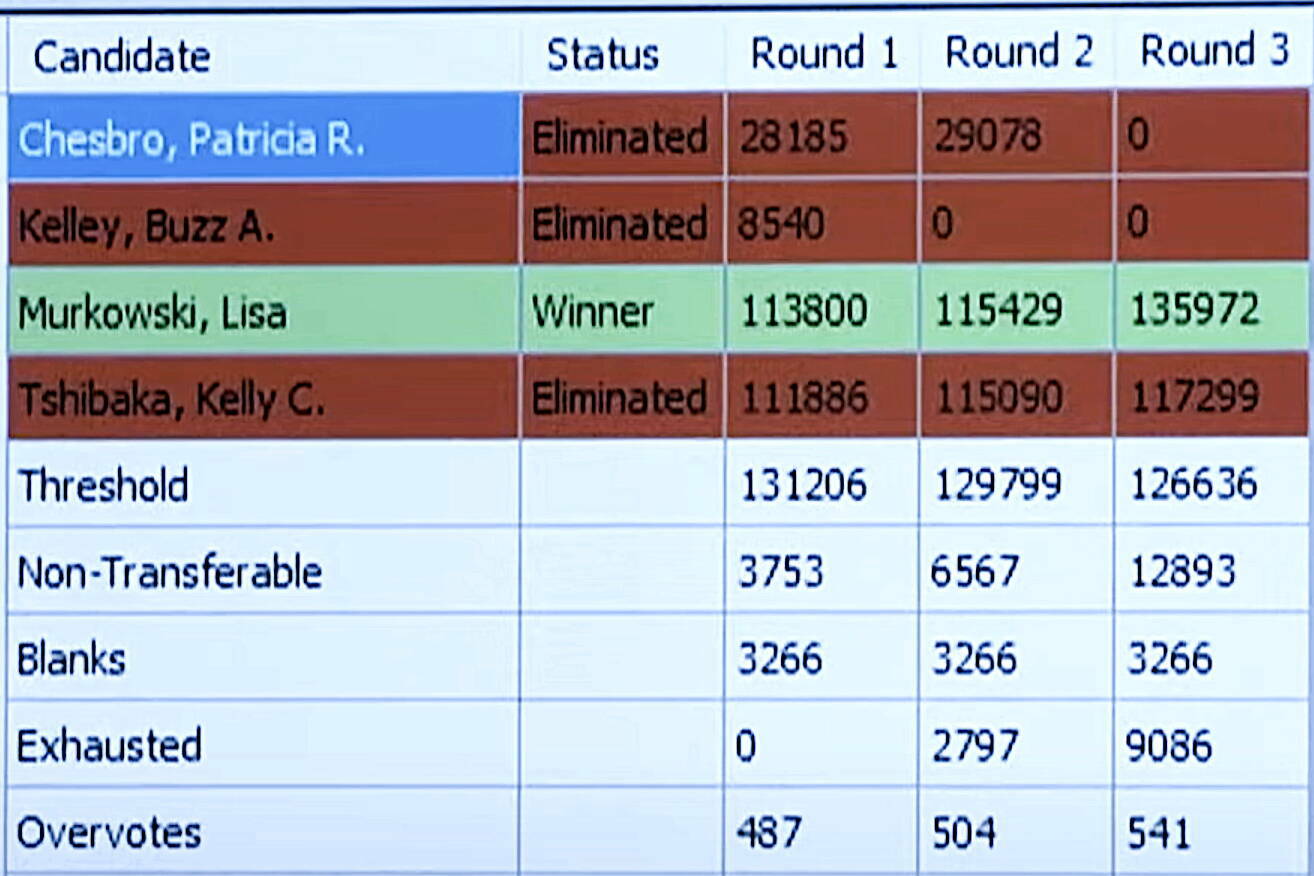Ranked choice voting, or RCV, is once again under threat in Alaska. A new ballot initiative seeks to repeal the system that Alaskans voted into place in 2020 and narrowly reaffirmed in 2024. If this new repeal measure qualifies for the 2026 ballot, voters should reject it again — just like last time.
RCV has given Alaskans a better way to express their preferences, it has put more options on the ballot, and it has fostered a less-toxic political climate.
But that doesn’t mean RCV can’t be improved.
Let’s start with the obvious: Alaska’s general election ballot has gotten messier. Under the current system, voters are asked to rank four candidates for each office — the four top vote-getters from the all-party “jungle” primary.
But very few voters actually rank all four candidates in any given race. A study by the Alaska Division of Elections found that only about 10% of voters did so in the 2022 general election race for U.S. Senate.
And that handful of fourth-place rankings has never changed the outcome in an election in our state. Not once, not ever. Winners were determined after earlier rounds of elimination, so the process never even reached the fourth-place rankings. That fourth name on the ballot is a distracting waste of space.
But a significant number of voters — about 30% in the 2022 U.S. Senate race — do rank three candidates, and similar trends show up in other races. That means there is meaningful citizen interest in having three names on the ballot for each race. While some have suggested cutting the number to two, that would be going too far. Three names on the ballot is the sweet spot.
So, fixing RCV in Alaska is simple: reduce the number of candidates to be ranked from four to three. It won’t change outcomes, but it will make ballots shorter, faster to complete, and less intimidating for the average voter.
Proposed legislation in Juneau would do exactly that. Sponsored by the Senate Judiciary Committee, Senate Bill 179 would cut the number of candidates to three on the general election ballot. Let’s hope it passes into law.
Has RCV made a difference in the Legislature’s makeup?
It would appear that it has, by encouraging independent candidates.
In the two elections before RCV, Independents were relatively scarce in our 60-seat Legislature. There was only one from 2018-20, and 4 from 2020-22. Today, seven Independents serve in Juneau. That’s a meaningful shift. RCV gives Independents their own lane, and voters a way to support them without “wasting” their votes.
Who’s losing ground to Independents? The Republican Party. In the last two elections before RCV kicked in, Republicans held 36 seats, then 34. Today, they’re down to 30 seats.
And Democrats? Not much change there. In the last two pre-RCV elections, they won 23, then 22 seats. Today, they hold 23 seats again.
Perhaps most importantly, RCV may be nudging Alaska politics toward less confrontation and more cooperation through bipartisan coalitions.
In the Alaska House, such coalitions are nothing new.
But in the Senate? Before 2022 — the first RCV election — there hadn’t been a bipartisan Senate coalition since 2012.
And under RCV? We’ve had bipartisan Senate coalitions after both the 2022 and 2024 elections. Today’s coalition features nine Democrats and five Republicans working across the aisle to address real issues instead of scoring partisan points. That’s no accident. It’s what happens when candidates are rewarded for appealing to a broad electorate rather than a narrow party base.
So let’s not throw RCV out because it isn’t perfect. Instead, let’s make it better. Contact your legislators and urge them to support Senate Bill 179 to trim the candidate count from four to three. Simplify the ballot but keep ranked choice voting.
And if the repeal proposal makes next year’s ballot, vote against it!
Stan Jones is a longtime Alaska journalist, environmental advocate and mystery novelist. He lives in Anchorage.

